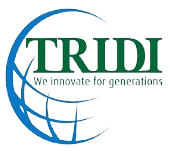- Home
- Sericulture Project
- Research
- Research
- Downloads Pubulications
- Biosafety Regulatory Systems
- Biotechnology and Genetic Improvement
- Breeding of Sorghum for Striga resistance and drought tolerance
- All about Genetic Engineering and GM Crops
- Production, processing and utilization of Coffee
- Portfolio
- PESTISIDE
- Social Science and Agribusiness
- Apiculture Technologies and Innovation
- Enhance breeding of Goats and Sheep
- Integrated Sustainable Intensification and management
- Education and training
- About TRIDI
- Skills Competitions
- Blog
- Home
- Sericulture Project
- Research
- Research
- Downloads Pubulications
- Biosafety Regulatory Systems
- Biotechnology and Genetic Improvement
- Breeding of Sorghum for Striga resistance and drought tolerance
- All about Genetic Engineering and GM Crops
- Production, processing and utilization of Coffee
- Portfolio
- PESTISIDE
- Social Science and Agribusiness
- Apiculture Technologies and Innovation
- Enhance breeding of Goats and Sheep
- Integrated Sustainable Intensification and management
- Education and training
- About TRIDI
- Skills Competitions
- Blog
Journalism and Media Studies
National Certificate and DIT Accreditation in Journalism and Media Studies (NCJM)
The National Certificate in Journalism and Media Studies equips students with essential skills in reporting, writing, editing, and broadcasting. The program prepares them for careers in journalism, media, and communication, with a focus on ethical storytelling and digital media literacy.

- DURATION...........................2 Years
- Accreditation......................DIT & UBTEB
- Tuition
- International Students: UGX 800,000 (USD 223) per semester
- Ugandans / East Africans / Refugees: UGX 420,000 per semester.
- Accommodation/Hostel/Meals
- ........UGX 480,000 per semester
Modularization of the Program:
The NCJM curriculum is based on a modular system. Continuous assessments are carried out as a Competence-Based Education and Training requirement. Each module contains sub-modules to help students understand core tasks through applied knowledge, practical environments, and professional attitudes. Students will also carry out real-life projects to practice the knowledge and competencies acquired in class.
Major Modules Covered
- Fundamentals of Mass Communication
- Principles of News Writing and Reporting
- Principles of Radio Production
- Ethics in Journalism
- Social Concepts in Media
- Public Speaking
- Principles of Public Relations
- Principles of Economics
- Computer Applications
- Elements of Entrepreneurship Development
- Writing for the Media
- Contemporary Media Applications
- Fundamentals of Media Law
- Principles of Photojournalism
- Principles of Advertising
- Principles of Television Production
- Video Editing and Production
- Basic Kiswahili
- Fundamentals of Political Science
Examining Bodies
Uganda Business and Technical Examinations Board (UBTEB):
- National assessment body for credible national examinations and awarding Certificates and Diplomas.
- Modular system easing workload for students and tutors, with certificates for each module.
- A learner with at least a 2.0 CGPA in all modules will be awarded a classified “National Certificate in Journalism and Media Studies” by UBTEB.
Directorate of Industrial Training (DIT):
- Quality assurance for Business, Technical, Vocational Education, and Training (BTVET).
- Examination levels: Level One, Level Two, and Level Three.
- Students are examined three times in an academic year.
Fees for the Program
Tuition:
- Ugandans / East Africans / Refugees: UGX 420,000 per semester.
- International Students: UGX 800,000 (USD 223) per semester.
Examination Fees:
- Fixed by UBTEB and DIT.
Accommodation/Hostel/Meals:
- UGX 480,000 per semester. Private accommodations are also available.
Other Requirements:
- A ream of unruled paper
- A ream of ruled paper
- Smartphone
- Laptop
- Flash Disk
Program Objectives
- Familiarize learners with the fundamentals of media, including types, functions, and impact on society.
- Develop skills in research, writing, editing, and reporting for various media platforms.
- Encourage critical thinking and media literacy to analyze and evaluate media content.
- Enhance written, verbal, and visual communication skills for effective storytelling.
- Prepare students for entry-level positions in media organizations, newspapers, magazines, television, radio, and online media.
- Instill an understanding of ethical principles and professional standards in journalism and media practices.
- Educate students on using digital tools and technologies for content creation, distribution, and consumption.
- Develop research skills to investigate and analyze media-related topics and issues.
Program Learning Outcomes
By the end of this program, learners should be able to:
- Observe different cultures through interaction with various categories of people.
- Creatively search for and produce information.
- Apply appropriate technology to collect, process, and store information.
- Critically analyze societal issues and disseminate information.
- Write accurate, objective, fair, and balanced stories.
Career Opportunities
- Reporter: Cover news stories, conduct research, interview people, and engage readers/viewers with storytelling.
- Editor: Choose stories, assign to reporters, edit, and proofread content.
- Photojournalist: Provide images for news and feature stories, capture events, and provide information about photographs.
- Videographer: Capture moving images for journalism outlets, non-profits, or video production companies.
- Data Research Analyst: Collect data, detect trends, and solve problems in journalism, marketing, or insurance.
- Content Manager: Develop content strategies, create content, and track performance.
- Copywriter: Write content for businesses, organizations, and marketing agencies.
- Social Media Manager: Create social media posts, build interest, and drive website/store visits.


